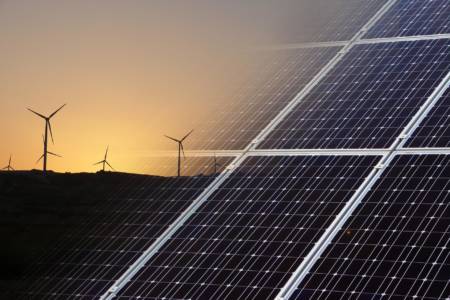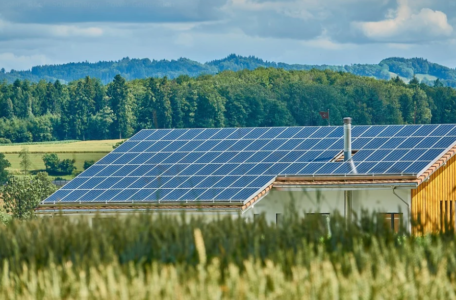 At the end of April 2022, Xcel Energy filed a new proposal for its electric resource plan that will have the 750 megawatt, coal-fired Pueblo 3 plant in Pueblo, Colorado close no later than January 1, 2031. While this is a step forward from the initial plan to burn coal through 2034, there is work yet to be done to ensure an even more rapid transition away from fossil fuels in our state that is also just for workers and protective of communities and ratepayers.
At the end of April 2022, Xcel Energy filed a new proposal for its electric resource plan that will have the 750 megawatt, coal-fired Pueblo 3 plant in Pueblo, Colorado close no later than January 1, 2031. While this is a step forward from the initial plan to burn coal through 2034, there is work yet to be done to ensure an even more rapid transition away from fossil fuels in our state that is also just for workers and protective of communities and ratepayers.
350 CO has pressed Xcel Energy along with the Public Utilities Commission (PUC), calling for a series of major improvements on issues with the November, 2021 settlement that had been previously proposed and would have extended coal-burning in Colorado. The updated proposal includes:
- The exact retirement date for C3 would be set in 2024 as part of a separate Just Transition proceeding at the PUC, but it would be no later than 1/01/2031. 350 Colorado would like it closed by 2025 at the latest, or the next time it breaks down, whichever is sooner.
- The PUC will be required to review cost recovery for retiring coal units and Xcel’s ownership of new resources. 350 Colorado rejects any language that allows Xcel to charge the customers for phasing out Pueblo 3 (as well as ALL coal plants including the Brush and Hayden coal plants). Our position is that any decisions on cost recovery or replacement procedures should be done in a separate litigated financing order that will include a prudence review. Xcel should not be assuming that it can pass all those costs onto their customers–with the impact falling disproportionately on low-income and small business customers. We support a call for a prudence review before all decisions on stranded asset recovery.
- It would change the modeling lifespan of any proposed gas capacity from 40 years to 25 years to better align with the state’s decarbonization goals. 350 Colorado does not approve of plans to build any new gas plants, and urges all resources to be devoted to a rapid buildout of renewables, transmission, and storage capacity.
- It would also accelerate Xcel’s plan to stop burning coal at one of its other coal plants, Pawnee Generating Station in Brush, CO, resulting in additional pollution reductions.
The recent efforts built upon efforts of local residents and Colorado environmental and community groups in Pueblo, who have mounted public pressure against a Pueblo nuclear power proposal, citing numerous dangers and associated public health and safety implications, including the severe risk of contamination and radioactivity. Pueblo County Commissioners have considered putting a nuclear power plant in Pueblo to replace Xcel Energy’s Pueblo 3 Coal Plant, Colorado’s largest coal-fired power plant, which has been Colorado’s largest source of greenhouse gas emissions.
Want to take action to support renewable energy & the closure of the Pueblo 3 Coal Plant? Here’s how.
- Call on the Public Utilities Commission and ask for closure of Pueblo 3 by 2025, as well as no new gas plants. Tell them that all resources should be put toward renewables, transmission and storage, and that the ratepayers should not have to absorb the costs of closure. Contact the PUC – Phone: 303-894-2000; Email: dora_puc_website@state.co.us
- Contact Governor Polis and ask for closure of Pueblo 3 by 2025, as well as no new gas plants. Tell the Governor that all resources should be put toward renewables, transmission and storage, and that the ratepayers should not have to absorb the costs of closure. Call the Governor’s Office, Front Desk: (303) 866-2471; Email: Governorpolis@state.co.us
- Contact your City Council members and County Commissioners and let them know you want an end to coal-fired energy generation (in Pueblo and across the state) and no new nuclear or fossil gas development. Share your support for renewable energy generation sources like wind and solar.
350 Colorado continues to call for the just transition to renewable energy, supporting a number of community actions opposing the nuclear proposal. Opposition from community and environmental groups and backlash from local residents remain, and the need for a just transition to renewable energy following the decommissioning of the Pueblo 3 coal plant must be elevated.
Thanks to Marie Venner, with Jamie Valdez – a Pueblo resident with Mothers Out Front, for the below reflection on Pueblo.

Pueblo needs Renewable Energy, Not Coal or Nuclear.
Pueblo is Colorado in so many ways. It is between the Plains and the Mountains and was an early Colorado community. Pueblo is the home of well-known Colorado leaders such as Bill Vidal, leader of DRCOG, CDOT, and the City and County of Denver, who wrote Boxing for Cuba: An Immigrant’s Story, about his life growing up here. Pueblo includes many Colorado families whom the border crossed multiple times and people from many of the ethnic backgrounds most known and connected with Colorado’s history.
Pueblo was one of the first and strongest communities in Colorado, declaring the desire to move to 100% renewable energy, on a city and county level. At the same time, Pueblo families and households have suffered pollution, utility disconnections, and oppression by a wealthy, out-of-state utility monopoly that epitomizes the situation faced by most Colorado citizens and ratepayers. Pueblo has also seen the electoral interference and unjust burdens imposed by wealthier interests.
Like our country as a whole, Pueblo encompasses both rural and urban. Pueblo depends on manufacturing and has weathered tough transitions and a lack of labor protection agreements. Coal still runs in Pueblo, making it more difficult for kids and adults to breathe, now known to feed into every type of mental and physical illness, through the inflammation process, and causing early death. After air pollution particulate matter was identified as a cause of over a fifth of dementia and Alzheimer’s cases, for example, places phasing out this pollution are seeing health and cognitive improvements, lower incidence of dementia, and lower illness and death rates.
The Minnesota-based utility monopoly polluting Pueblo to supply Denver and environs with electricity has stirred up concern about the 80 or so jobs that their Pueblo Unit 3 provides and tax revenue for the city. The plant was offline for a year recently, raising questions about how needed it is. Pueblo’s people are strong and hard-working and want to continue to see good jobs, but coal hasn’t lifted the community, which is one of the poorer urban areas in the state. Many are working more than one job just to put food on the table and keep a roof over their heads, not to mention the amounts Pueblo community members spend on energy, 43% higher than the municipally owned utility just north in Colorado Springs, which is already off coal.
Only a tiny percentage of people in Pueblo benefit from jobs at the Xcel coal plant.

Pueblo resident and activist, Jamie Valdez
Community member Jamie Valdez shares, “We can do better and expect better, and people need to know this and be reassured of this. If not, it will never get better. That is for sure. Only a tiny percentage of the people in Pueblo benefit from jobs at the Xcel coal plant that all residents can see, perhaps 80-100 jobs, about .1% of the population of well over 100,000 people. Yet the whole community suffers from higher asthma, COPD, and cardiovascular disease. Higher rates of a huge range of other diseases are seen from such pollution, but no monitoring exists so we do not know about these in Pueblo,” says Valdez.
The desperation for a modicum of security, the ability to have or put food on the table and a roof over one’s head, for one’s family, for health care, for some ability to counter the extraction of everyday working folks’ funds to Wall Street firms plagues Puebloans and workers at large. That desperation and hope to be able to make it on the jobs on offer in our system as it is “allows corporations to undercut us, to devalue us as a community and our labor, to provide jobs that are sub-par, jobs that don’t provide stability,” Valdez comments. Rural areas and transitioning steel and coal communities like Pueblo are especially familiar with this squeeze.
PEDCo or Pueblo Economic Development Corporation has had a contract with the city to bring in development. “For years and years they have brought in employers that go through temp agencies rather than deliver good jobs,” said Valdez. “They brought in Vestas, one of largest plants here in Pueblo, but PEDCo brought them in without project labor agreements. Recently Vestas announced 150 layoffs – good jobs, welders, — and the very same day, advertised for same jobs at lower wages. Everyone wanted to bite the head off of renewable energy jobs and advocates.”
Labor protections and community benefits agreements have been rare, but the situation underlines how important they are, and that is a basis for new strength in the labor, health, community, and environmental coalition. Colorado’s AFL-CIO edited and added to the https://bit.ly/LaborRecommendations for such agreements.
“Education is needed,” Valdez says. “Everyone can see Xcel’s coal stacks, and a lot of the community thinks that is where we get our power from. Meanwhile, Black Hills Energy is overcharging and Pueblo suffers from double the asthma rate for Colorado,” as the pollution continues.
The role of out-of-state monopolies, their money, and financial advantage can be seen in Pueblo’s story and effort to “Bring Power Home” and regain control of their energy future, corralling profits that would otherwise be sucked out of state. A 2019 survey found that 70% of Pueblo residents wanted to break away from Black Hills Power. At the beginning of 2020, a City Council satisfaction survey reconfirmed that 70% of the population wanted to break away and form a municipal non-profit utility to create a good income stream and have cleaner power, better service, and local ownership in Pueblo. But less than 5 months later, a ballot measure lost by that same percentage after a huge infusion of advertising by those benefiting from prevention of this public interest. County Commissioners supportive of the transition and local ownership were unseated as well.
There is great potential for Pueblo to develop and own solar plus storage capacity.
 Things can be different though. Pueblo already has the transmission lines to Colorado’s highest population centers and if Pueblo could develop and own the solar plus storage, it could capture the outsize returns currently going out of state. Or perhaps workers could own or co-own?
Things can be different though. Pueblo already has the transmission lines to Colorado’s highest population centers and if Pueblo could develop and own the solar plus storage, it could capture the outsize returns currently going out of state. Or perhaps workers could own or co-own?
Pueblo could build a solar panel factory and get the panels at wholesale prices. With all the supply chain shortages now and burgeoning worldwide demand for photovoltaic panels in the transition, it makes sense for Colorado to produce our own and have that manufacturing here. Top solar panel manufacturers in the US include LG Solar, Hanwha Q Cells, SunPower, Panasonic, and Jinko Solar. First Solar is the largest US-based solar panel manufacturer with an annual production of 1.9GW of solar modules.
Pueblo has outstanding solar potential.
Pueblo has outstanding solar potential and Xcel is planning on building some and having the returns from that go to private investors or PPA entities, all aiming for 9-11% rates of return. Could this be channeled to workers and the city of Pueblo though, providing community support for decades into the future as well as cleaner air now? Power could be cheaper too. Monopolies would like us to think it is not possible, but it is, if we go after it.
Want to take action to support Pueblo?
- Call on the Public Utilities Commission and ask for closure of Pueblo 3 by 2025, as well as no new gas plants. Tell them that all resources should be put toward renewables, transmission and storage, and that the ratepayers should not have to absorb the costs of closure. Contact the PUC – Phone: 303-894-2000; Email: dora_puc_website@state.co.us
- Contact Governor Polis and ask for closure of Pueblo 3 by 2025, as well as no new gas plants. Tell the Governor that all resources should be put toward renewables, transmission and storage, and that the ratepayers should not have to absorb the costs of closure. Call the Governor’s Office, Front Desk: (303) 866-2471; Email: Governorpolis@state.co.us
